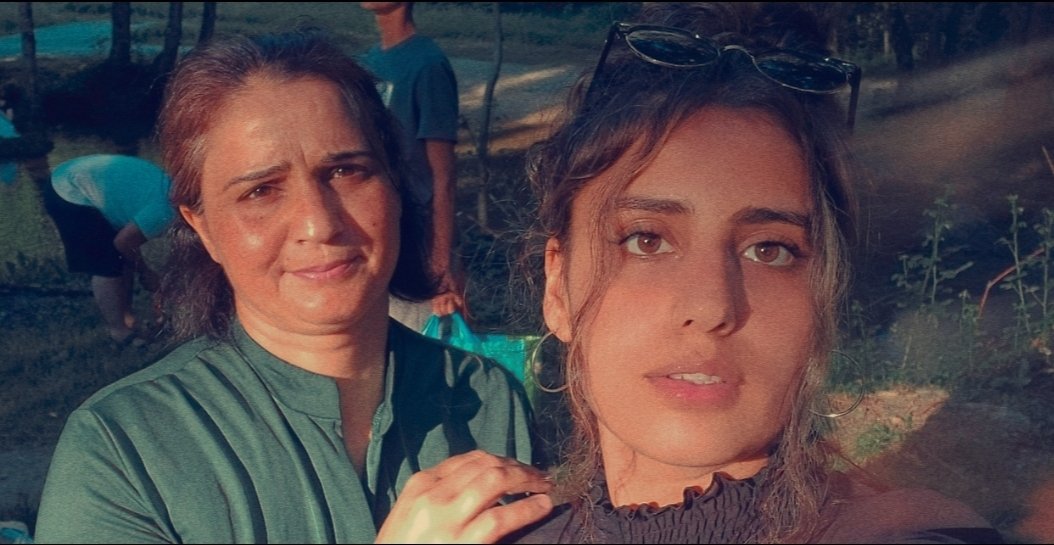Rural Ambassadors for Inclusive Territories: Portrait of Zozan and Khmlin
We strive to promote whole-of-society and participatory approaches for the social inclusion of newcomers. Our ambassadors for Inclusive Territories are people - refugees, migrants and local elected representatives of small and medium communities - who have first-hand experience of the inclusion and integration of newcomers in rural areas of France. They give input on good practices for welcome and integration in rural communities and advocate for more and better integration actions at the local, regional, national and European levels.
Zozan and Khmlin are mother and daughter of Syrian origin. They arrived in France with the rest of their family on July 18th 2018 through the resettlement program. Since then, they have lived in Ayen, in Corrèze. Zozan is 42 years old, she is married and has 3 children, two daughters and a boy. She has been working in a VVF (Family Vacation Village) in Ayen since 2019. Khamlin, her second daughter, is 18 years old and she is in her final year of high school.
A local community committed to welcoming newcomers
They stated that "France is an opportunity for us" when telling us about their experience of successful integration. The availability and kindness of the local community and of the volunteers enabled them to overcome the administrative, linguistic and transport challenges that can be found in rural areas. "When we arrived, we didn't know anyone but the village volunteers were very kind and warm to us despite the fact that, at the beginning, it was difficult to communicate because we didn't speak French. The people of the village came to us, they introduced themselves and asked us what we needed. This moved us a lot and made us feel at ease", they say. They are also very grateful for the administrative support provided by the "Maison France Service" in Ayen.
Insertion into the labor market
The volunteers also mobilized their network to support the parents in their search for work, which was truly helpful for their integration. "For my husband and I, it's more than anything since we found a job that the opinions of others have changed", Zozan tells us. Insertion into the labor market has led to greater autonomy for the family but also to a change of attitudes in the local community. “Once people see that you are working and making an effort then they look at you differently. My husband's employer at first didn't want foreigners or Muslims, but the volunteers talked to him and when they gave it a try it went very well", Zozan explains.
The challenge of mobility
One step on the path towards independence for their family was to find an answer to the challenge of mobility. As is the case with many newcomers, especially in rural areas, at the beginning they did not have their own means of transportation and were faced with mobility difficulties. “We were totally dependent on others”, says Khmlin. Now her father has obtained his driving license, but the process was difficult and expensive.
Learning French and making friends
The integration of the children into school was not without challenges either. “When I arrived in middle school, I was struggling”, Khmlin admits. “My sister and I were the first foreign and non-French speaking people in this school”. They were able to benefit from targeted language courses and special sessions organized with foreign students from other schools who also needed to learn French. Nevertheless, it was thanks to their perseverance and strength of will that they were able to overcome the challenge of learning a foreign language. Khmlin explains that at first "I had a real blockage and then I realized that I could not miss out on my studies. (…) We decided with my sister to really commit to learning French and it was very important to have 3 to 4 hours of French a day, even though it was a lot".
Learning French then facilitated the social integration of the children. “My parents were lucky to make friends quickly, for example the volunteers and other Syrian families living in Ayen”, Khmlin tells us. “But for me, my brother and my sister, it was more difficult because in Ayen there are old people and not many young people. Fortunately among the volunteers there was a young person my age, and she helped me so much to adapt to studies in France", she explains.
Zozan and Khmlin are happy that they can now call the volunteers neighbors and friends above all. They feel very comfortable in Ayen, which they describe as a “beautiful” village. “There is a school, a pharmacy, a small supermarket, and a doctor. It's a tiny village but the people are very nice. It’s a great environment for integration”, they say.
Participation in the SHARE TI project
Their experience illustrates how the participation of exiled people in their integration, as well as that of local populations, is key for successful social integration and professional insertion. Their positive experience encouraged them to join the SHARE TI initiative and become Ambassadors to share their stories for the benefit of others: "It is important that others see that integration in rural areas is possible because often foreigners are afraid of being isolated when in fact it is quite the opposite. For foreigners to be able to integrate well in small villages, there must be a Maison France Service and volunteers to support them".
And in the future?
Zozan is very happy for her family. "The things I wanted I found in France", she says, mentioning for example the possibility that her children could continue their studies as well as having found a job in which she feels appreciated. On her side, Khmlin wishes to continue her studies. "I am entering my final year and once I have the BAC I will do a BTS in accounting, near Bordeaux or not too far", she concludes.



